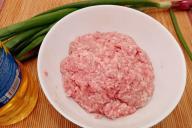Pumpkin is one of the healthiest vegetables, contains a huge amount of vitamins, and is considered a dietary product due to its low calorie content.
This vegetable is recommended for both adults and children, but despite all the benefits, it is better for people with certain health problems to exclude this vegetable from their diet.
Benefits of pumpkin
Pumpkin contains vitamin C, vitamin E and K, almost all B vitamins, calcium, magnesium, zinc, L-arginine. The seeds also contain salicylic acid. The content of carotene (which is broken down by the body into vitamin A) in pumpkin is 5 times greater than in carrots.

The useful substances in pumpkin are not only in the pulp, but also in the seeds and peel. For example, the seed coat contains the amino acid cucurbitin, which has anthelmintic properties.
People with high blood pressure and atherosclerosis need pumpkin because of the potassium contained in the pulp. It strengthens the walls of blood vessels.
An important property of zinc, which is found in pumpkin pulp, is its ability to enhance spermatogenesis, so pumpkin has a positive effect on the reproductive system in men.
Pumpkin juice can help pregnant women with severe toxicosis.
Groups of People Who Should Avoid Pumpkin
Because of its high glycemic index of 75, pumpkin should not be consumed by people with severe diabetes. The glycemic index is the rate at which blood sugar levels rise. This means that eating pumpkin can cause a sharp rise in blood sugar levels.
Pumpkin seeds, as mentioned earlier, contain salicylic acid, so people with gastrointestinal problems should also avoid dishes based on this vegetable or its seeds.
Thus, pumpkin is an essential part of both an adult's and a child's diet. This vegetable can be eaten raw, added to desserts and main dishes.
Previously, we reported on what kind of people need to eat beets.








